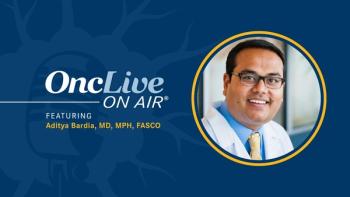
Dr. Albain on the 21- and 70- Gene Assays in Breast Cancer
Kathy S. Albain, MD, from the Loyola University Chicago and Cardinal Bernardin Cancer Center, discusses the difference between the 21-gene (Oncotype DX) assay and 70-gene (MammaPrint) assay in breast cancer.
Kathy S. Albain, MD, medical oncologist, Loyola University Chicago, professor, Stritch School of Medicine, director, Breast Clinical Research Program, Thoracic Oncology Research Program, Cardinal Bernardin Cancer Center, discusses the difference between the 21-gene (Oncotype DX) assay and 70-gene (MammaPrint) assay in breast cancer.
Albain says that she's often asked which of the two tests should be ordered on a given patient. It is important to understand what data is available and that these are two different tests: one is based on 21 genes and the other on 70 genes with different technology. The 21-gene assay is a continuous variable, while the 70-gene assay gives a binary result of good risk or poor risk.
Both assays have been analyzed in the neoadjuvant setting. Albain says that six or seven studies have revealed the same result: If a patient is in the good-risk or low-risk categories as a result of either assay, the pathologic complete response to chemotherapy is extremely low.


































